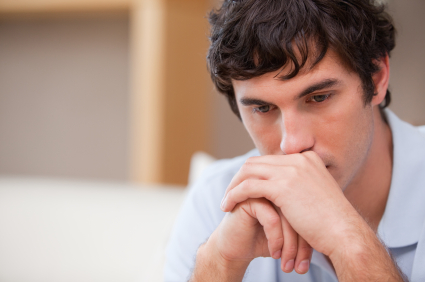Spotting the symptoms
Depression is not a one-size-fits-all condition and although there are common symptoms they can and do vary from person to person. Indeed, if you talk to any two depressed people about their feelings, you might think they were describing two entirely different conditions.
“One person might not be able to summon the energy to leave the house, while another might feel agitated and restless. One might feel extremely sad and burst into tears easily, while another might snap at the slightest provocation. One has no interest in food while another can’t keep their hands out of the biscuit tin,” says Amelia.
Depression can also have physical symptoms. For example, headaches, stomach pains, loss of libido and lack of energy can all be signs of depression and low mood, especially in someone who is unwilling or unable to recognize that they are depressed.
“This is not that surprising as mind and body are inextricably linked,” comments Amelia. The brain controls every function in the body so what is going on mentally is bound to have a physical impact,” she adds. Experts usually judge the severity of depression by assessing the number of symptoms and the degree to which they impair on daily life.
According to the Royal College of Psychiatrists if at least five of the following apply to someone almost every day over a two-week period they may be depressed.
They:
- Are unhappy most of the time
- Have no interest in life and find it hard to enjoy things
- Find it hard to make decisions
- Can’t cope with the things that they used to be able to cope with
- Appear tired, restless and/or agitated
- Have no appetite and are losing weight
- Have sleep problems
- Are not interested in sex
- Are low in self confidence
- Feel useless and hopeless
- Avoid others
- Appear to be worse at a particular time of day, usually in the morning
- Have suicidal thoughts
A low mood can quickly turn into depression when it becomes frequent, persistent and begins to seriously affect work and relationships. If you think this could apply to a friend or family member or if you start to notice that they keep on bursting into tears, have no appetite, and are sleeping badly, they could be suffering from depression and you should gently suggest they see their GP as soon as possible.
Over the years many attempts have been made to slot types of depression into different boxes but no single classification system has held sway for long.
The most common types according to the experts are often referred to as:
| Mild | People have some symptoms and find it takes more effort than usual to accomplish what they need to do. |
|---|---|
| Moderate | People have some symptoms and find they often keep you from accomplishing what they need to do. |
| Severe | People have nearly all the symptoms and find they almost always keep them from accomplishing daily tasks. |
Source: Understanding depression, health report from Harvard Medical School
